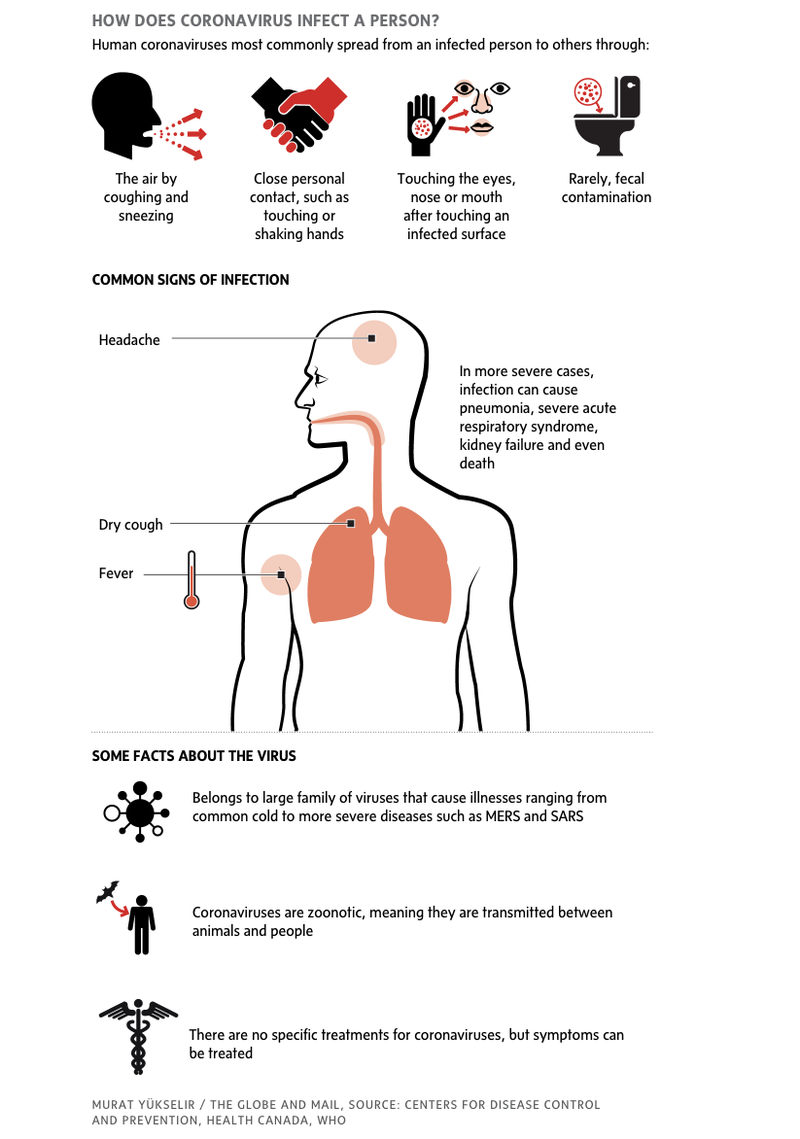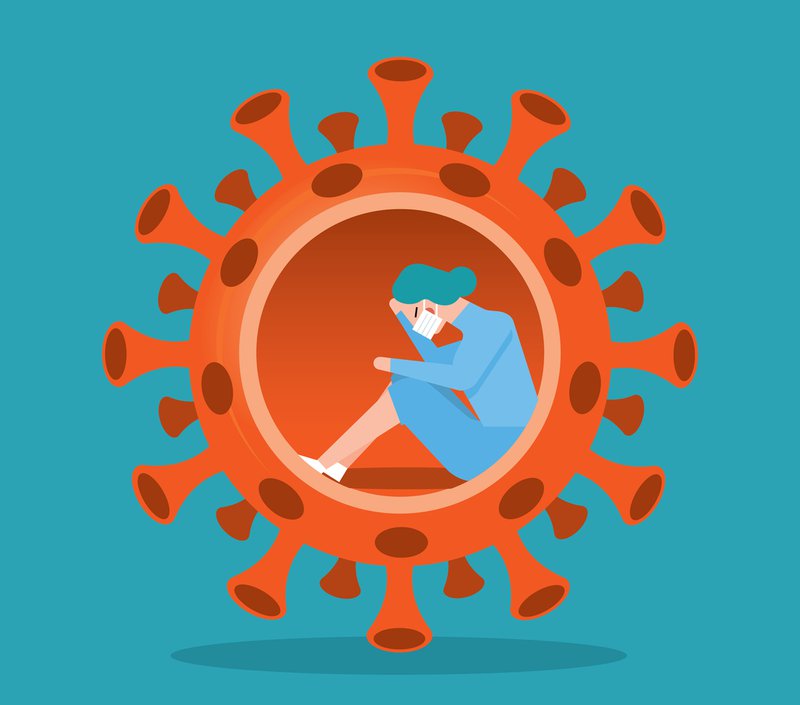
Wendy Leung
March 10, 2020
If you think you may be infected with the new coronavirus, isolate yourself quickly and call your doctor or public health authority, health officials say.
As long as you’re not experiencing a severe shortness of breath, don’t go to the hospital emergency department because that could put other patients at risk, says James Heilman, an emergency physician in Cranbrook, B.C. “If you come to the emergency department, you come into a crowded waiting room, that’s just a recipe for disaster,” he says.
Here’s what to do instead.
Do you have any of the symptoms?
It can take up to 14 days for symptoms to appear after you’ve been exposed the virus. These symptoms include fever, cough, difficulty breathing and pneumonia in both lungs, according to the Public Health Authority of Canada website. It can be tricky for people to recognize they are infected because the symptoms can resemble a cold or flu, and some individuals experience little to no symptoms.
To self-monitor, watch for any symptoms of fever, coughing or difficulty breathing for 14 days after exposure and avoid public places, Ontario’s Ministry of Health says. If you do develop symptoms, isolate yourself immediately.

Where do you go for help?
If you are experiencing symptoms, shy of a severe shortness of breath, call your local health authority, or your health-care provider. (See below for health authority phone numbers for each province.)
Be sure to call your family doctor, and let them know you’re worried you may be infected, before you show up at their office, Dr. Heilman says.
In Alberta, residents are advised to visit their doctor as a last resort, says Stephanie Smith, director of infection prevention and control at the University of Alberta. Instead, she says, they’re advised to call 811, the provincial health-link number. Those manning the phone lines can go through your medical and travel history with you, and determine the next step to take. They can either direct you to a testing centre, recommend that you be brought to the hospital in an ambulance if you’re very ill or have emergency medical service providers come test you in your home, Dr. Smith says.
Should you only seek help if you’ve recently travelled?

Your risk of having COVID-19 is certainly lower if you haven’t left the country than if you’ve recently travelled to an affected area, Dr. Smith says. But don’t assume you’re free of infection. In Alberta, she says, all testing currently done to look for any respiratory pathogens will also include testing for COVID-19.
In B.C., health providers are also screening for the disease among everyone who has flu-like symptoms, Dr. Heilman says.
What if you need to be tested?
Some places are setting up special units, specifically to test people for COVID-19. This helps avoid having potentially infected individuals come in contact with those not infected.
It’s best not to show up at one of these centres without making that initial phone call to your doctor or local health authority first. You don’t want to be around potentially infected individuals needlessly, Dr. Smith says.
The test itself involves having someone stick a little cotton swab at the back of your throat, and another swab up your nose, Dr. Heilman says.
“It’s a little uncomfortable, but it’s a pretty simple process,” he says, but the results can take days or weeks, depending on courier times and the wait at the lab.
What do you need to do to self-isolate?
Stay home, limit the number of visitors to your home, stay in a separate room and away from others as much as possible and use a separate bathroom if you have one, Ontario’s Ministry of Health says. If you do have to be in the same room as someone else, keep a distance of two metres, and wear a mask that covers your nose and mouth, it says.
Like everyone else, make sure you practice hand hygiene and cover your mouth and nose when you sneeze.
Watch this video to see how the World Health Organization recommends you wash your hands to prevent the spread of disease.
How do you care for yourself?
There isn’t any specific treatment for COVID-19. As such, Dr. Heilman says as long as they don’t need in-hospital care, patients at his hospital would likely be isolated, assessed and sent on their way.
“If your vital signs are reasonable … we’ll just recommend that you self-isolate at home,” he says.
Most people who become sick from coronaviruses get better on their own, Ontario’s Ministry of Health says. Drink plenty of fluids, rest and get as much sleep as possible, and use a humidifier or take a hot shower to soothe a sore throat or cough, Ontario’s Ministry of Health advises.
Emergency numbers to call
Here are the local numbers for public health authorities across Canada.
- British Columbia: 811
- Alberta: 811
- Saskatchewan: 811
- Manitoba: 1-888-315-9257
- Ontario: 1-866-797-0000
- Quebec: 811
- New Brunswick: 811
- Nova Scotia: 811
- Prince Edward Island: 811
- Newfoundland and Labrador: 811 or 1-888-709-2929
- Nunavut: 867-975-5771
- Northwest Territories: 911
- Yukon: 811
This Globe and Mail article was legally licensed by AdvisorStream.
© Copyright 2024 The Globe and Mail Inc. All rights reserved.


